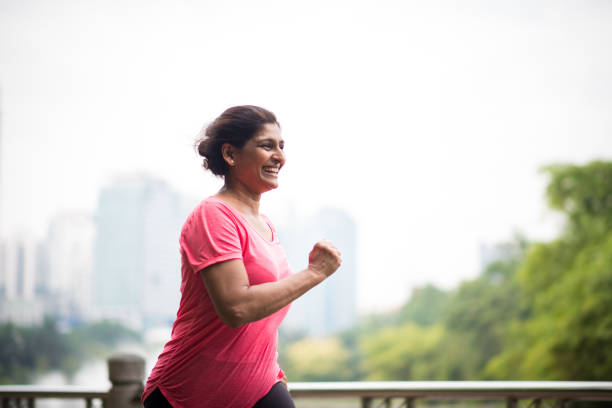When it comes to weight loss, gender differences are significant, yet they often go unnoticed. While both men and women face their own unique challenges, several biological and societal factors make it particularly difficult for women to shed pounds. Understanding these challenges can help in fostering a supportive environment that promotes metabolic health and overall well-being.
Biological Factors Influencing Weight Loss in Women
Hormonal Variations
One of the primary reasons why women may find it harder to lose weight is the complex interplay of hormones in their bodies. Hormones like estrogen and progesterone significantly influence metabolism, fat storage, and appetite. During various life stages, such as menstruation, pregnancy, and menopause, fluctuations in these hormones can lead to weight gain or hinder weight loss efforts.

Body Composition Differences
Women naturally have a higher body fat percentage compared to men. Biologically, women’s bodies are designed to store fat more efficiently as an evolutionary adaptation for childbearing and lactation. This physiological trait means women may burn fewer calories than men even when at rest, impacting their overall metabolic health.
Slower Metabolism
Research shows that women generally have a 5 to 10 percent lower basal metabolic rate than men. This means women burn fewer calories at rest, which can be a significant barrier to weight loss. This slower metabolism becomes even more pronounced with age, especially after menopause, when muscle mass tends to decrease and fat takes its place.

Societal Challenges Facing Women
Balancing Multiple Roles
Many working women juggle multiple roles daily, balancing career demands with family responsibilities, which can impede their ability to maintain healthy habits. Time constraints may limit their opportunities for exercise and lead to stress-eating or reliance on processed, unhealthy foods for convenience.
Stress and Emotional Eating
Women are more likely than men to experience stress-related eating, which can contribute to weight gain. Emotional eating as a response to stress can lead to significant fluctuations in weight, especially when combined with other factors like hormonal changes.
Health Education and Support
Although awareness is increasing, there still exists a gap in specifically tailored health education that addresses women's health and metabolic needs. Women require access to information and resources that respect their unique physiological processes and help them establish sustainable healthy habits.
Dietary Approaches for Women
Traditional Indian Balanced Diet
A Traditional Indian Balanced Diet emphasizes a harmonious blend of all food groups, ensuring a rich intake of nutrients through a variety of natural sources. Central to this diet are whole grains such as chapatis made from whole wheat, brown rice, and millets like ragi and bajra, which provide sustained energy and fiber. Protein sources are predominantly lentils such as moong, toor dal, and chana dal, as well as legumes including rajma and chole, which are excellent for heart health and muscle maintenance. For fruits, incorporating local seasonal varieties such as mangoes in summer or guavas in winter ensures high antioxidant intake.

Ayurvedic Diet
The Ayurvedic Diet is grounded in ancient Indian wellness practices, focusing on eating in harmony with one’s body type or dosha. This holistic approach includes Sattvic foods that promote clarity and balance, such as fresh fruits, cooked vegetables, and whole grains like basmati rice and oats. Proteins from plant sources such as mung beans and lentils are encouraged for their digestibility and nourishing properties. The diet also extensively uses spices like turmeric, ginger, cumin, and coriander, which enhance digestion and revitalize the body's internal systems. Herbal teas, made from herbs like tulsi and licorice root, are recommended to harmonize the body’s energies. Following this diet helps in not only maintaining physical health but also in achieving mental clarity and emotional balance.

South Indian Coastal Diet
Emphasizing the bounties of the sea and coconut groves, the South Indian Coastal Diet is rich in nutrients and flavors. Staples of this diet include seafood such as prawns, mackerel, and sardines, known for their high omega-3 content and essential fatty acids. Coconuts are used in various forms; coconut oil for cooking, coconut milk for curries, and grated coconut for garnishing dishes. Rice is a primary component, often seen in preparations like dosas and idlis. This diet also features a variety of fermented foods, which are great for gut health. The use of tamarind and curry leaves in dishes not only enhances flavor but also boosts metabolism and digestion.

North Indian Plant-Based Diet
Predominantly vegetarian, the North Indian Plant-Based Diet includes a rich assortment of pulses, vegetables, and grains that are staples in the regional cuisine. Pulses such as chickpeas in chole and kidney beans in rajma provide high levels of protein and fiber. Whole grains are consumed as rotis made from whole wheat and poha from flattened rice. A variety of seasonal vegetables are prepared in dishes like saag (made from mustard leaves) and mixed vegetable curries, offering ample vitamins and minerals. Dairy plays a crucial role too, with paneer and yogurt frequently used in cooking and as sides. This diet supports a robust metabolism and caters to the nutritional needs without compromising on taste.

Conclusion
Addressing the unique challenges women face in losing weight requires a shift from a generic approach to a more personalized strategy that recognizes the intricate relationship between a woman's physiological makeup and her lifestyle. By focusing on sustainable, practical solutions tailored to their specific needs, women can overcome the hurdles that impede their weight management efforts. Furthermore, societal support—from family, employers, and health professionals—plays a crucial role in facilitating this process.
When women are equipped with the right devices and supported by their community, they are better positioned to succeed in achieving not only their weight loss goals but also in maintaining long-term health and wellness. This holistic approach not only benefits individual women but is also essential for fostering a healthier society where women's health issues are recognized, understood, and effectively addressed.




